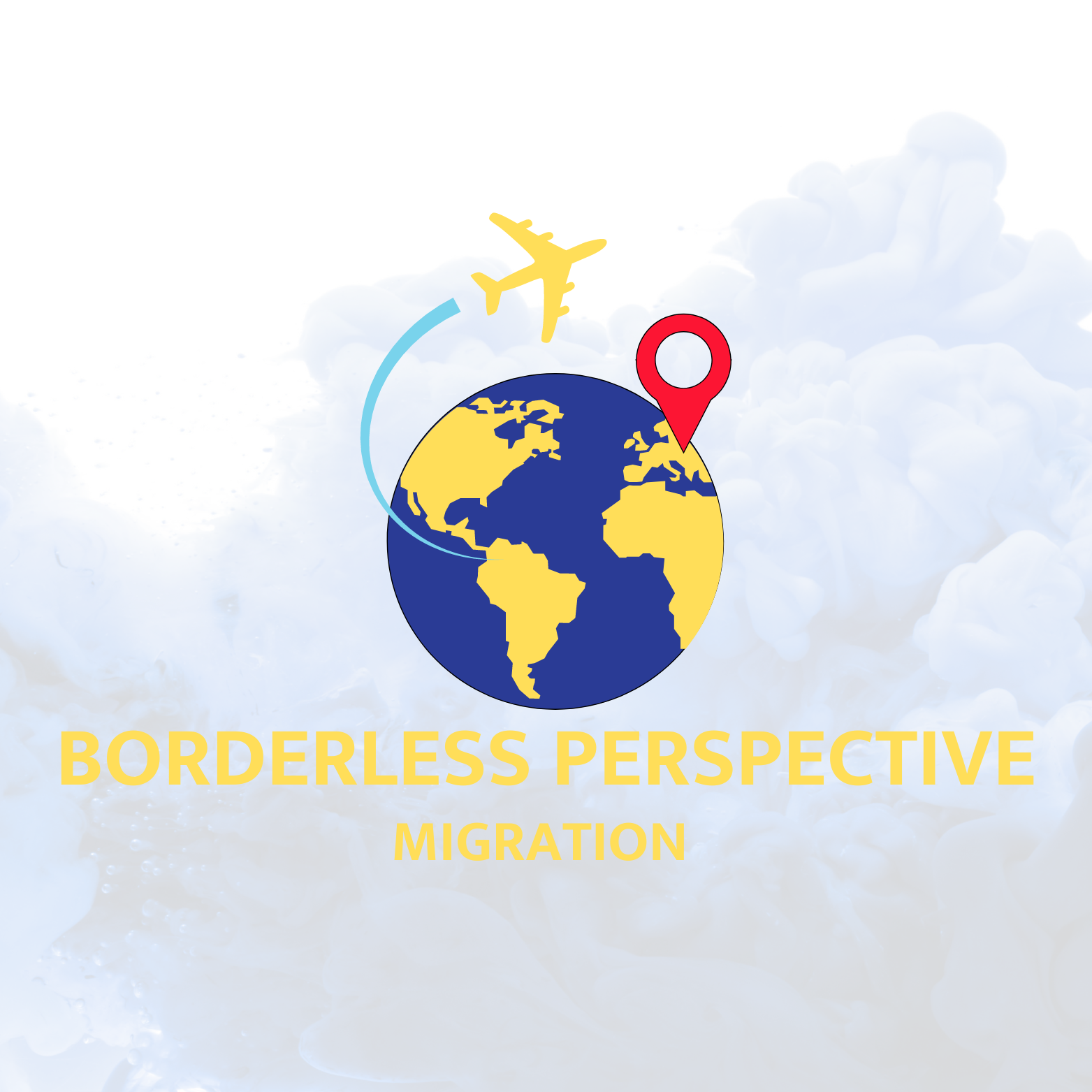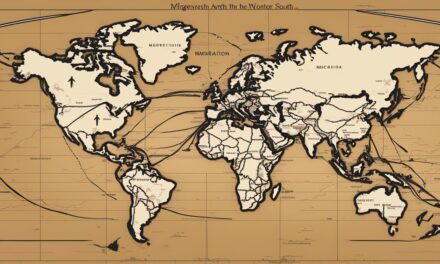
Students with a refugee or migrant background often face difficulties in adjusting to a new learning environment. The European Commission has been supporting EU Member States since 2016 in their efforts to integrate migrants in their education and training systems, from early childhood education to higher education.
The Commission’s Action Plan on Integration and Inclusion 2021-2027 emphasizes the provision of targeted support at all stages of integration and highlights the importance of inclusive education and training. Mutual learning activities, such as language assessment, recognition of qualifications, and intercultural dialogue, are facilitated by the Commission to promote the exchange of good practices among EU Member States.
The Erasmus+ program also plays a crucial role in fostering the integration of migrants through funding projects and activities in all sectors of education and training.
Key Takeaways:
- Migrant integration is crucial for building inclusive societies.
- Language acquisition is essential for migrant integration.
- Educational opportunities play a significant role in promoting migrant integration.
- Promoting civic engagement among migrants enhances community integration.
- Migrant language skills development is a key factor in promoting cultural integration.
Promoting Migrant Integration through Language, Education, and Civic Engagement
The process of integrating migrants into host societies is a multifaceted endeavor that requires a comprehensive approach. One of the key elements in promoting successful integration is through language, education, and civic engagement. By focusing on these areas, host communities can empower migrants, foster social inclusion, and enhance their civic participation.
Language acquisition plays a crucial role in the integration process. Providing language courses for migrants not only helps them develop their communication skills but also facilitates their cultural integration. By learning the language of the host country, migrants can actively engage with the local community, access educational and employment opportunities, and navigate daily life with greater ease.
Education also plays a significant role in promoting migrant integration. By ensuring educational opportunities for migrants at all levels, from early childhood education to higher education, host societies can empower migrants to reach their full potential. Education not only equips migrants with the necessary knowledge and skills but also fosters social integration by promoting intercultural understanding and dialogue.
Civic engagement is another important aspect of migrant integration. Encouraging migrants’ active participation in the civic life of the host community helps create a sense of belonging and strengthens social cohesion. Integration-focused programs that promote civic engagement among migrants, such as volunteering opportunities and community initiatives, provide avenues for migrants to contribute to their new society and develop meaningful connections with local residents.
Measuring Migrant Integration: Evolution of Metrics and Approaches
Measuring the progress of migrant integration is essential to assess the effectiveness of policies and programs. Over the years, metrics and approaches for measuring integration have evolved to encompass various dimensions:
- Language competency: Assessing migrants’ language skills in the host country’s language is a crucial indicator of their ability to integrate and communicate effectively.
- Educational attainment: Evaluating migrants’ educational achievements provides insights into their access to educational opportunities and their ability to succeed academically.
- Economic status: Examining migrants’ economic situation, including employment rates and income levels, sheds light on their financial stability and integration into the labor market.
- Political participation: Analyzing migrants’ engagement in political processes and institutions helps gauge their inclusion and representation in decision-making.
- Civic engagement: Measuring migrants’ involvement in community activities and participation in social organizations reflects their integration into the local fabric.
It is crucial to consider the host society’s approach towards migrants when measuring integration. Government policies regarding access to education, the labor market, and public benefits significantly influence the integration process. Local institutions such as schools and community groups also play a vital role in supporting migrants’ integration through their initiatives and programs.
| Metric | Description |
|---|---|
| Language competency | Assessing migrants’ proficiency in the host country’s language. |
| Educational attainment | Evaluating migrants’ educational achievements and access to educational opportunities. |
| Economic status | Examining migrants’ employment rates, income levels, and integration into the labor market. |
| Political participation | Analyzing migrants’ engagement in political processes and institutions. |
| Civic engagement | Measuring migrants’ involvement in community activities and social organizations. |
By assessing these metrics and considering the host society’s approach, policymakers and stakeholders can gain valuable insights into the integration process, identify strengths and areas for improvement, and formulate targeted strategies to promote migrant integration effectively.
Enhancing Migrant Language Education: A Two-Way Process
Migrant language education plays a vital role in promoting the integration of migrants into their host communities. It is a two-way process that involves not only raising communicative competence but also identifying individual language needs. By understanding these needs, language courses for migrants can be tailored to address their specific requirements, such as language proficiency for personal activities and employment.
Positive incentive-based policies have shown great potential in motivating migrants to engage in language learning. Rather than imposing conditions and sanctions, which can undermine external motivation, a supportive and encouraging approach can foster personal engagement. By linking language learning to tangible incentives or rewards, migrants can find the motivation to persevere and improve their language proficiency.
Integration through language proficiency goes beyond mere communication skills. It enhances migrants’ sense of belonging and connection to the host community. By creating a supportive and inclusive environment that recognizes the value of migrants’ cultural identities, language education can contribute to a stronger integration process. The goal is to empower migrants, not only to communicate effectively but also to navigate and participate fully in their new society.
FAQ
What is the European Commission doing to support the integration of migrants in education and training?
The European Commission has been supporting EU Member States since 2016 in their efforts to integrate migrants in their education and training systems. They provide targeted support at all stages of integration, including early childhood education to higher education. Mutual learning activities and the Erasmus+ program are also utilized to promote the exchange of good practices among EU Member States.
How is the evaluation of migrants’ integration conducted?
The evaluation of migrants’ integration includes various dimensions such as language competency, educational attainment, economic status, political participation, and civic engagement. These indicators provide insights into how migrants culturally, economically, and socially integrate into their host community. There has been a shift towards evaluating host societies’ approaches towards migrants, including government policies and the role of local institutions such as schools and community groups.
What should be the focus of migrant language education?
Migrant language education should focus on raising migrants’ communicative competence in the language of the host country while meeting their perceived needs. It is essential to identify and formulate language needs related to personal activities, employment, and specific situations. Positive incentive-based policies and fostering personal engagement are crucial in promoting successful language learning and integration.
MORE SOURCES TO READ:
- https://education.ec.europa.eu/focus-topics/improving-quality/inclusive-education/migrants-and-refugees
- https://www.coe.int/en/web/lang-migrants/motivation
- https://www.migrationpolicy.org/article/changing-concepts-immigrant-integration
![]()











Recent Comments